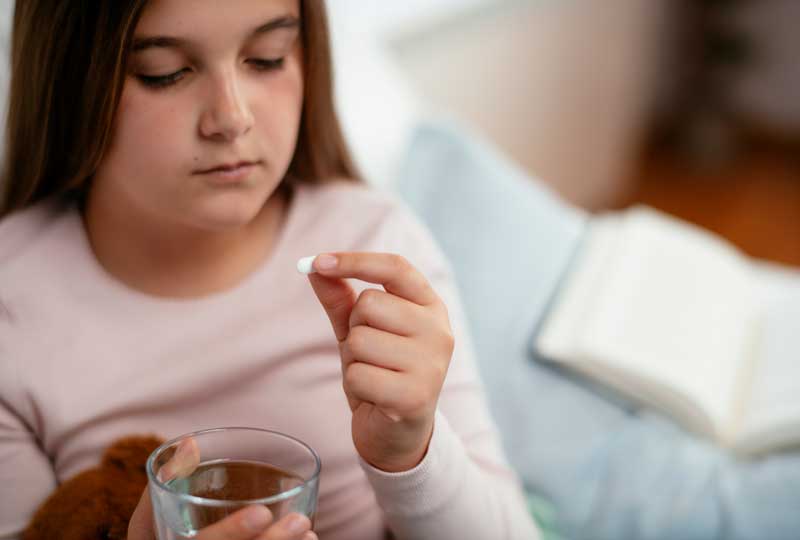If your child is dealing with depression or anxiety, medication may be the right solution. Learn more about antidepressants for teens and children.
Doctors say they’ve seen an increase in mental health issues facing teens and younger children in recent years. The uncertainty of the ongoing pandemic has only exacerbated the situation. Care providers are encouraging parents to be on the lookout for changes in their child’s behavior. If you suspect your child is dealing with depression, anxiety or another concern, reach out to their pediatrician for support. If a physician deems them appropriate, antidepressants can help.
“There are lots of different aspects of treatment that we want to encourage families to engage in,” said Margaret Benningfield, M.D., Division Director for Child and Adolescent Psychiatry at Vanderbilt University Medical Center. “Medications are one tool that we can use to help decrease suffering.”
How to know if your child needs help
Consider whether your child may be experiencing a functional impairment, Benningfield said. Signs might include being more irritable, not wanting to spend time with friends or having disrupted sleeping or eating patterns. Of course, these things can occur temporarily if someone is feeling down or ill, and they may quickly resolve. But if the period lasts over several weeks, reach out to a physician.
“One of the things that is hardest for parents to determine,” Benningfield said, “is when symptoms are related to the normal ups and downs that kids experience, especially when going through puberty.”
Where to start
Your primary care physician can be a great resource to help you understand antidepressants for teens. “With the increase in tremendous stress and uncertainty over the last several years,” Benningfield explains, “primary care providers in pediatrics have become really aware of the need to support families around these concerns.”
Therapy vs. medication
Parents often have the question about whether therapy or medication is the best approach for their child. “A lot of people want to start with therapy first,” Benningfield said. “That’s a reasonable approach in most cases. But treatment studies have shown that medication is safe and effective for kids and a combination of therapy and medication is usually more effective, especially when symptoms are severe.”
Skip the stigma
Often parents worry about stigma associated with taking antidepressants. “I encourage them to think about depression and anxiety just like any other chronic illness,” Benningfield explained. “If a child had diabetes, we wouldn’t withhold treatment with medication.”
How old do kids have to be to take antidepressants?
Antidepressants are approved for use in children as young as 6 or 7 — and they are safe and effective. But Benningfield said they are sometimes prescribed for younger kids, as well — though therapy is typically the first line of treatment for younger children. “We’ve learned that even very young children can show signs of depression,” she added, “and treatment can be really helpful and can prevent other problems down the line.”
What are the side effects of antidepressants in teens and children?
As with any medication, antidepressants may have side effects. “The common side effects that kids experience,” Benningfield said, “are some tummy upset, headaches or changes in sleep or appetite.” Often a physician can help manage side effects by changing when your child takes the medication.
Mental side effects of antidepressants in teens and kids
Another potential concern is a risk for what’s called activation. “Sometimes kids can become more energized, more irritable or have an increased activity level,” Benningfield explained. But activation is dose-dependent and often goes away once a dose is lowered.
Some serious, but rare, side effects of antidepressants in teens and children may also occur. One is an increased risk of suicidal thoughts when prescribed to those under 25. “We also have to balance the risk of treatment with the risk of not treating,” Benningfield explained. “Kids with depression are at risk for developing suicidal thoughts, even if we do nothing at all. So I encourage parents to think together with their providers about the pros and cons of all the different options.”

After-Hours care for your child
Vanderbilt’s Children’s After-Hours Clinics offer the convenience of a walk-in clinic with care provided by a board-certified pediatrician from Children’s Hospital. No appointment is necessary, but it’s wise to call your child’s pediatrician first.

